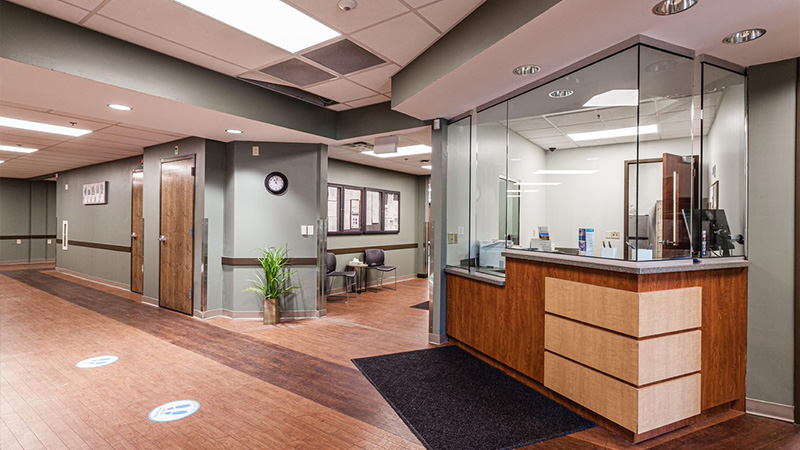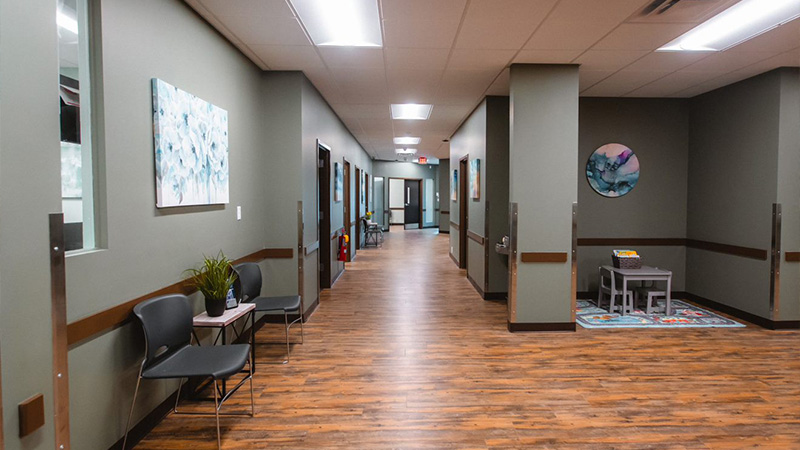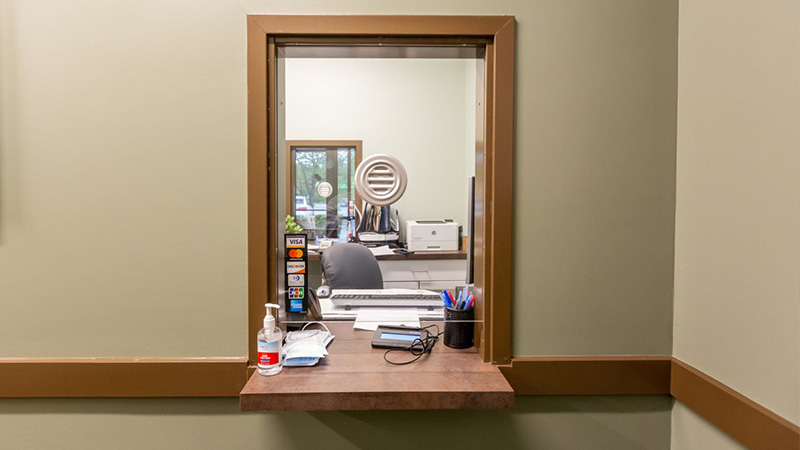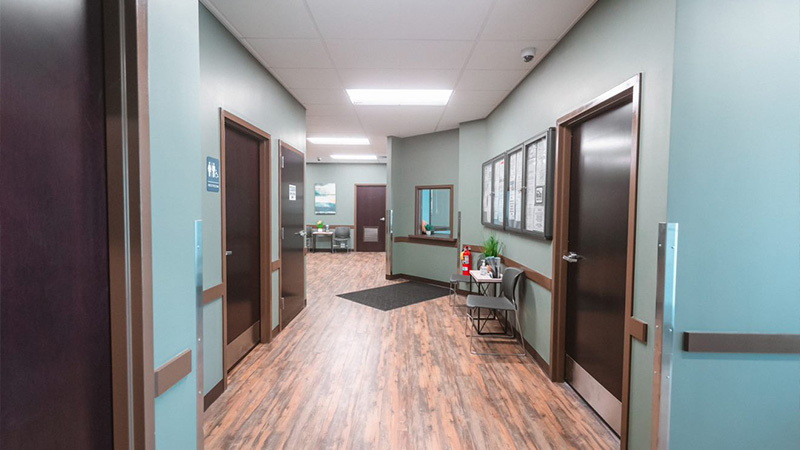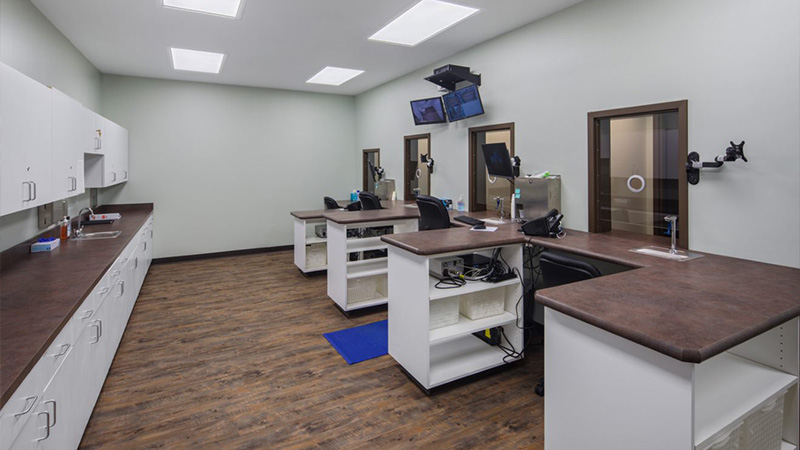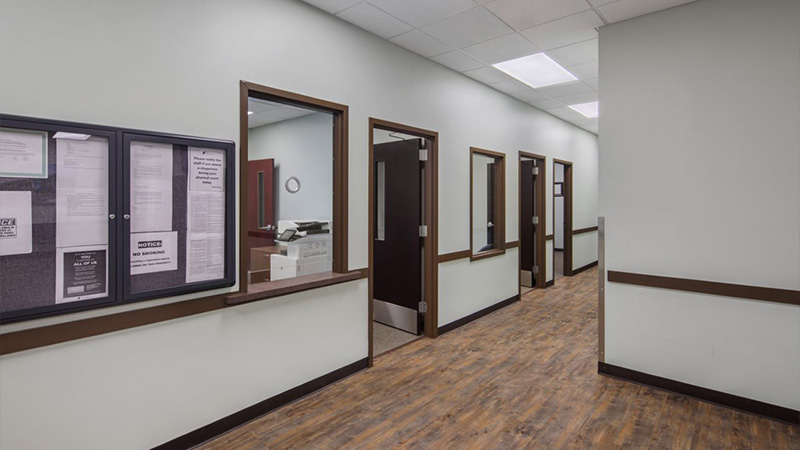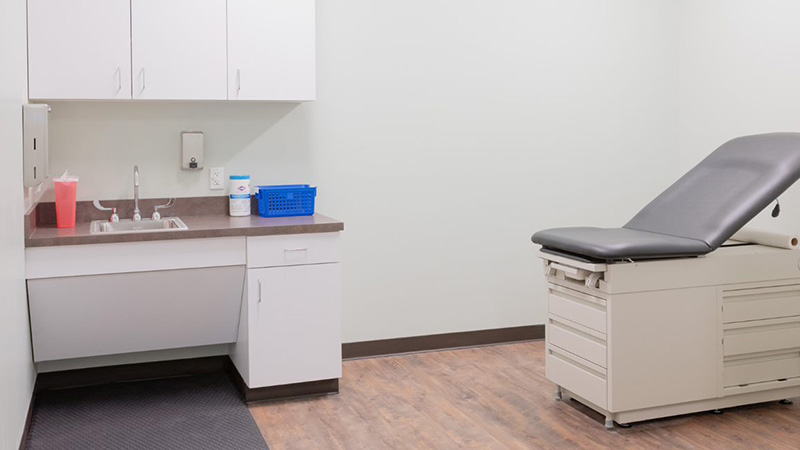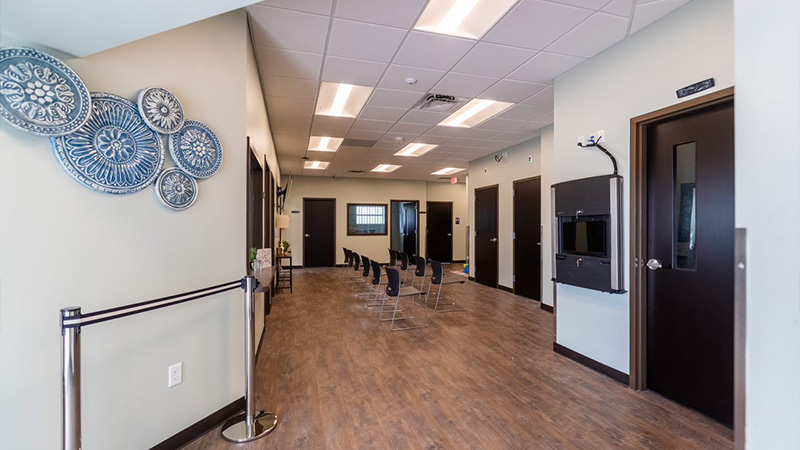Lewistown Comprehensive Treatment Center
Call Today
Get Directions
24/7 Appointment Scheduling
Call today to learn more & schedule an intake appointment.

Breaking the cycle of addiction starts with asking for help.
Lewistown CTC helps patients establish a strong foundation for opioid addiction recovery.
Is Lewistown CTC right for you?
Lewistown Comprehensive Treatment Center (CTC) offers outpatient treatment for adults age 18 and older of all genders who are struggling with opioid use disorder. The center, which is located in Lewistown, PA, provides medication-assisted treatment (MAT).
About Lewistown Comprehensive Treatment Center in Lewistown, PA
Lewistown Comprehensive Treatment Center (CTC) is a leading provider of opioid addiction treatment in Lewistown, Pennsylvania. The team at our outpatient rehab facility provides medication-assisted treatment (MAT) for adults age 18 and older who are struggling with addictions to opioids such as heroin and prescription painkillers. Our clinic is a full outpatient substance use disorder treatment facility with an acute focus on medication-assisted treatment.
If you are struggling with an addiction to opioids, receiving care at a methadone clinic like Lewistown CTC can help you get started on the path to lasting recovery. Our team of experienced and compassionate professionals is dedicated to helping you make the lifestyle and behavioral changes necessary to be successful in putting an end to your use of opioids.
Our clinic offers comprehensive, individualized treatment for individuals throughout Mifflin County and the surrounding communities. By receiving treatment at our outpatient opioid addiction treatment center, you can work toward recovery while having the flexibility to take care of your daily responsibilities.
The team at Lewistown CTC understands the complexities of opioid addiction and is dedicated to providing patients with the education and support they need to move toward a future free of opioid addiction.
Medication-Assisted Treatment for Opioid Addiction
Medication-assisted treatment is an evidence-based form of opioid addiction treatment that combines the use of medication with talk therapy. This specialized type of treatment is noted by countless professionals as being the most effective form of opioid addiction treatment, as it addresses both the physical and psychological aspects of addiction.
The medications used in MAT are approved by the U.S. Food and Drug Administration (FDA) and are safe for use under the supervision of qualified professionals. There are a number of medications used as part of MAT, including methadone, Suboxone®, buprenorphine, Vivitrol, and Sublocade. These medications all work to help lessen the painful symptoms of withdrawal while also preventing ongoing cravings for opioids.
Patients who receive MAT at our outpatient rehab clinic also participate in individual and group counseling sessions, which can be scheduled at times that are convenient for each patient.
Through MAT, individuals receive care that can help them confront and overcome the emotional, social, and physical effects of using opioids.
Why Choose Medication-Assisted Treatment
Opioid use affects a person’s mind, body, and spirit and has countless negative impacts on their life. Not only is a person putting their health at risk by using opioids, but they may also find that their self-esteem decreases, their relationships deteriorate, and it becomes seemingly impossible to take care of daily responsibilities.
But these things can be reversed by taking part in medication-assisted treatment. Therapy can help a person work through the behavioral and social effects of opioid addiction, and medication can help treat the physical effects.
The medications used in MAT are a crucial part of opioid addiction treatment because they alleviate the symptoms of withdrawal and reduce cravings. This is important because the withdrawal process is one of the most common reasons why individuals keep using opioids.
During withdrawal, people can experience any number of distressing symptoms, such as excessive anxiety, agitation, muscle aches, nausea, vomiting, abdominal cramping, profuse sweating, and diarrhea. Because these symptoms quickly go away once a person uses the substance again, it is easy to get stuck in the cycle of opioid use. By taking the FDA-approved medications offered as part of MAT, these symptoms can be eased without putting yourself in danger by using prescription painkillers or illicit opioids.
Additionally, the cravings for opioids can be extremely powerful, even after a person has gone through withdrawal. By taking a medication like methadone, Suboxone®, buprenorphine, Sublocade, or Vivitrol, those cravings are significantly reduced, which can help prevent the individual from relapsing.
The counseling aspect of MAT is critical in helping a person end the behavioral patterns associated with opioid use.
In individual therapy, patients meet one-on-one with a counselor in a private setting where they can talk through the experiences they have had, identify and confront their triggers, and discuss situations that may have contributed to their use of opioids. In these sessions, patients can also keep track of the progress they have made and celebrate milestones in their recovery process.
In group therapy, patients have the opportunity to come together with other individuals who can relate to what they are going through. Addiction can be a very isolating experience, so when people are able to be with peers and learn others’ stories, they come to find that they are not alone in the challenges they are facing. This sense of acceptance can have a great impact on a person’s motivation to continue on their recovery journey.
During group therapy sessions, which are led by qualified counselors, patients may engage in discussions on a variety of topics. These topics may include triggers, trauma, personal acceptance, relationships, grief, self-esteem, healthy boundaries, accountability, and relapse prevention. Patients can gain a deeper understanding of addiction, and they can learn and practice coping skills that can help prevent future relapse.
The combination of medication, encouragement from a counselor in individual sessions, and support from peers in group counseling can be instrumental in helping patients remain on the path to recovery.
What To Expect at Our Medication-Assisted Treatment Center
At Lewistown Comprehensive Treatment Center, we want to make access to care as easy and streamlined as possible. Patients are welcome to walk into our clinic to receive an assessment, or they can call ahead of time and schedule an appointment.
The patient will be asked to provide their personal demographic information, give a brief outline of their opioid usage, fill out necessary paperwork, sign consent forms, and provide a urine drug screening. The patient will then meet with a team member to complete a full assessment, during which they will be asked questions about their health, their social history, any previous treatment, the extent of their drug use, and any current presenting symptoms. The goal is for our team to gather as much information as possible about the patient so that we can create a treatment plan that best meets their needs. This treatment plan includes identifying the type of medication the person will be prescribed and the frequency of the individual and group counseling sessions they will take part in. During this time, patients are free to ask any questions they may have so that they can gain a full understanding of what will be included in their treatment process.
The team of professionals at our outpatient rehab clinic includes counselors, physicians, and dispensing nurses. Our team works diligently to help accommodate patients so that they are able to receive treatment on a consistent basis within a time frame that works best with their schedules.
Learn More
If you believe that you or a loved one could benefit from receiving medication-assisted treatment at our outpatient opioid addiction treatment center, we encourage you to contact us today. Our team is here to answer any questions you have about the medications we offer and the counseling services we have available. We are also happy to help you schedule an appointment or provide you with directions to our clinic.

“Methadone gave me a second chance at life, a life that heroin was taking away. I am forever grateful. Thank you!”
